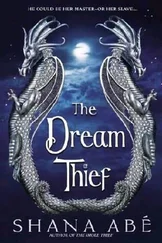For Mom and Dad, always and ever.
A book is just a dream, without pushing and prodding and heaps of encouragement; Wendy McCurdy,
Annelise Robey, and Andrea Cirillo deserve full kudos for helping me make this dream real. Thank you!
A very special umboogwa to Stacey, for using up all of her minutes on me. Ditto to Mandy!
And of course, domo, danke, and gracias to Darren,
who understood all that.
Imagine a place so ripe and thick with the promise of magic that the very air breathes in plumes of pearl and gray and smoky blue; that the trees bow with the weight of their heavy branches, dipping low to the ground, dropping needles and leaves into beds of perfume. A place of white sparkling mountains and black forests and one high, ancient castle. Of diamonds that churn up raw from the marrow of the earth to lace the woods, unseen, in necklaces of ice and fire.
A place without small creatures. A place without easy sight, or breadth. A place so hidden even the sun cannot pierce the heart of it, but spreads her light across the top canopy of trees, bringing green high above and dark silence well below, and streams that flow in crystal blades over the rocks and leaves. Jasper and quartz tumble in the streams, dusted with flakes of gold. Garlands of diamonds settle deep into pools, hidden beneath the silt.
Imagine that from this place is born a people. Special people, the sole beings of these woods. They live and hunt apart from the rest of the world, taming the forest, carving the quartzite mountains, building the lone castle that clings in cold splendor to the bleakest side of the tallest peak.
They hear the diamonds in the earth. They sing to the clouds. They hold the dominion of thought and transformation; steeped in magic, they live splendid and aloof, and when the jealous Others begin to come, the people of the mountains and woods defend their home with a ferocity that shatters the sky itself.
But the Others do not cease to come.
Imagine blood. Imagine war.
North, south, west and east—from every direction the invaders creep, muddying the streams, numbing the earth, with the castle and its mountain the very center of their ambitions.
To the last of the people atop the peak, the future is as clear and cold as starlight. They pry up the diamonds and jasper that were pressed into the stones of their fortress. They gather their children and vanish into the smoke, blue and gray and pearl.
But they did not take every diamond when they fled. And they did not take every last child.
Now imagine . . . that these are not people at all.
These are the drákon .
For a very long while, the forsaken castle remained unbreached. There were no paths leading up the mountainside; all was sharp stone and a sharper still descent. Men and the sons of men studied it for decades, wondering at its grandeur, its absolute contempt for all things below. The scraped glacier valleys hugging the bluffs claimed many broken bodies.
Yet as with so many things held out of reach, the dream of conquest simmered like a fever through the invaders. Eventually they began to understand how to scale the mountain, how to anchor their ropes, how to hack away the stone. In this way, over years, a track was hewn.
It devoured lifetimes.
Men were small and the castle so high; there were always new battles to fight, new crops to harvest, births and deaths and fleeting seasons. The people who lived in the woods now were merely Others; they did not hear the diamonds beneath their feet, and they never traveled the clouds. The flecks of gold threading the lakes and streams were said to be the final thoughts of the vanquished gods.
The fortress began to seem more and more a mirage than a goal, ever wrapped in mist, the rough quartzite bleeding clear crystal streamers down its walls and ramparts and parapets. Eventually even the creatures who once occupied it became woven into legend, their grace and ferocity fading into tales no more tangible than the moan of the wind.
The mountains garnered a name: Carpathians . And the castle at the highest peak: Zaharen Yce . The Tears of Ice.
Time had its way. Occasionally a block from a turret would loosen and fall, striking thunder off the cliffs.
The villagers below would pause and look up. Some would joke, The gods awake.
There came at last the day the Others finished their trail to heaven. But the olden castle held one more surprise for those first few who stepped foot inside.
Despite their uneasy jests, everyone believed it to be abandoned.
It was not.
The Carpathian Mountains slice a crescent moon across Europe and into the imaginary lines of men, jutting up through provinces and dukedoms and even kingdoms without regard for human boundaries. With windstorms and staggering heights, they remove any final weakness from civilization, savaging the frail, the unprepared; exalting only the powerful. Winter and snow and alpine flowers, meadows and opaque woods: from the most remote of these peaks a new noble family slowly began to blossom.
They were proud and very few, gaunt and beautiful.
This was the legacy the drákon had left behind with their castle: one son and one daughter, and from them generations of new life to dwell amid the mist and haunt the Others below, until they learned the secrets of their enemies. Until they learned, in fact, to become them . . . to look as they did, to breathe and eat and speak as they did. To plod the earth as the Others did, all the while hiding their true faces, and their true hearts.
So this is what those first invaders saw upon entering the castle, before dropping down to their knees: a handful of people, pale and stunning, with lips that smiled in welcome, but eyes that burned.
Centuries passed. The family grew. They began to command the respect of allies and foes alike, gathering towns and serfs at the flanks of the mountains to serve them. Monasteries, blacksmiths, smelts. Commerce, mines, walled cities. As the illusory borders of countries bulged with people, the family spawned warriors, and then aristocracy.
They lived in a mountaintop castle that gleamed sugar and salt in the sun, that vanished into ice with the snowfall.
They kept their dark secret very, very close.
Over time, they prospered. Their source of wealth was not merely the natural abundance of their beloved mountains, but also the absolute fealty of their people. The family had lived in The Tears of Ice for as long as anyone now could recall. They alone controlled the road winding up the mountainside. They alone controlled the mine shafts, and the smelts, and the bishops and merchants and snow-blinded passes leading to and from the many towns.
And they alone heard the diamonds in the ground, could taste the waiting gold buried in the black, rich earth. The beings once hunted by the Others were now protected by them. They were cherished, admired, feared.
The family became known as the Zaharen, after their ice-crystal fortress, and tales of them abounded. It was said they were blessed, and that they were cursed. That they were touched by the finger of God—or by the devil. Occasionally even hints of the old legend would resurface, whispers that the Zaharen were not all that they seemed. That in the skies late at night, against the slick black shadow of the castle, sinuous monsters could be seen hunting the moon.
Only the foolish ever spoke such a thing aloud; no one risked the wrath of the family lightly.
But the truth was, for all the rumors surrounding them, the Zaharen truly heeded only one whisper: that of the stones.
The castle became filled with diamonds once more. Every hollow, every pocket from the old stones that had been pried loose from the walls was refilled. To the few Others who were invited up into the stronghold, the unpolished gems appeared stark and oddly gleaming, an uneven mosaic of drab, spectral colors lining the halls.
Читать дальше












